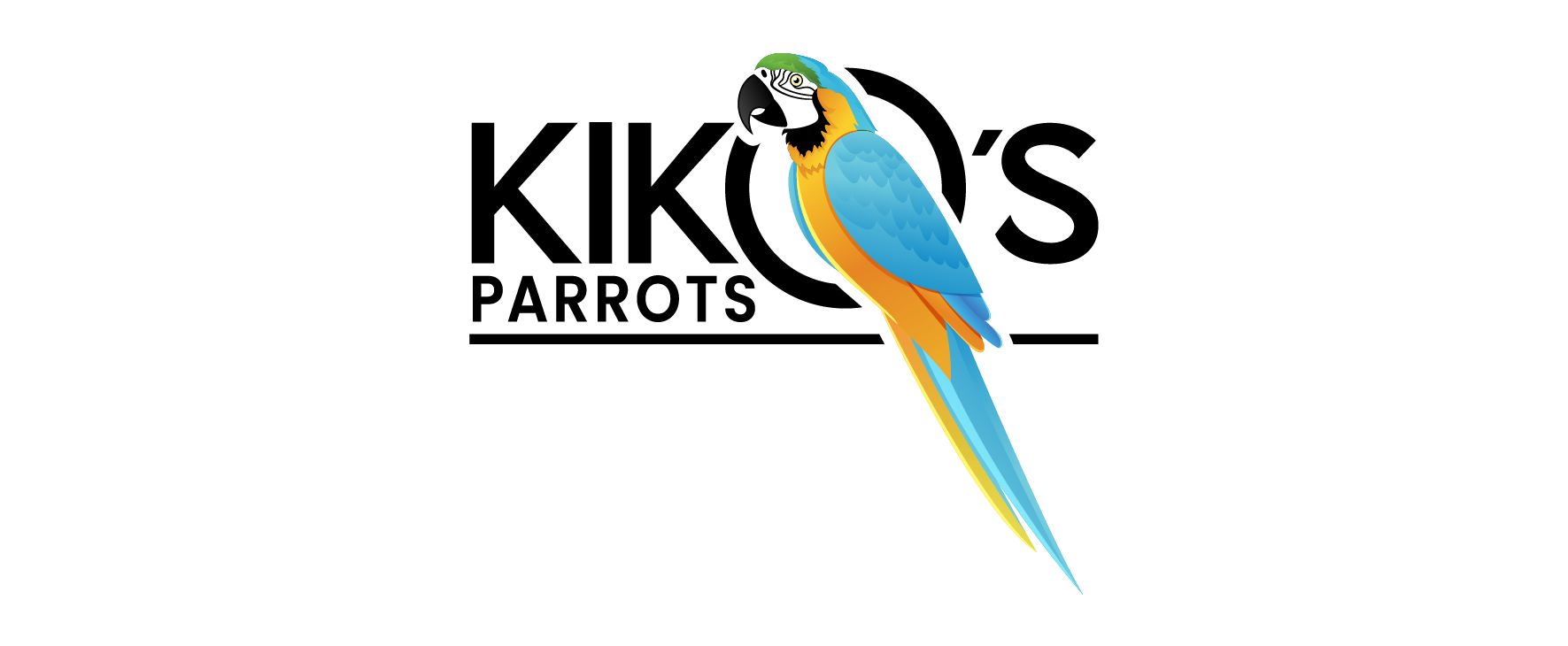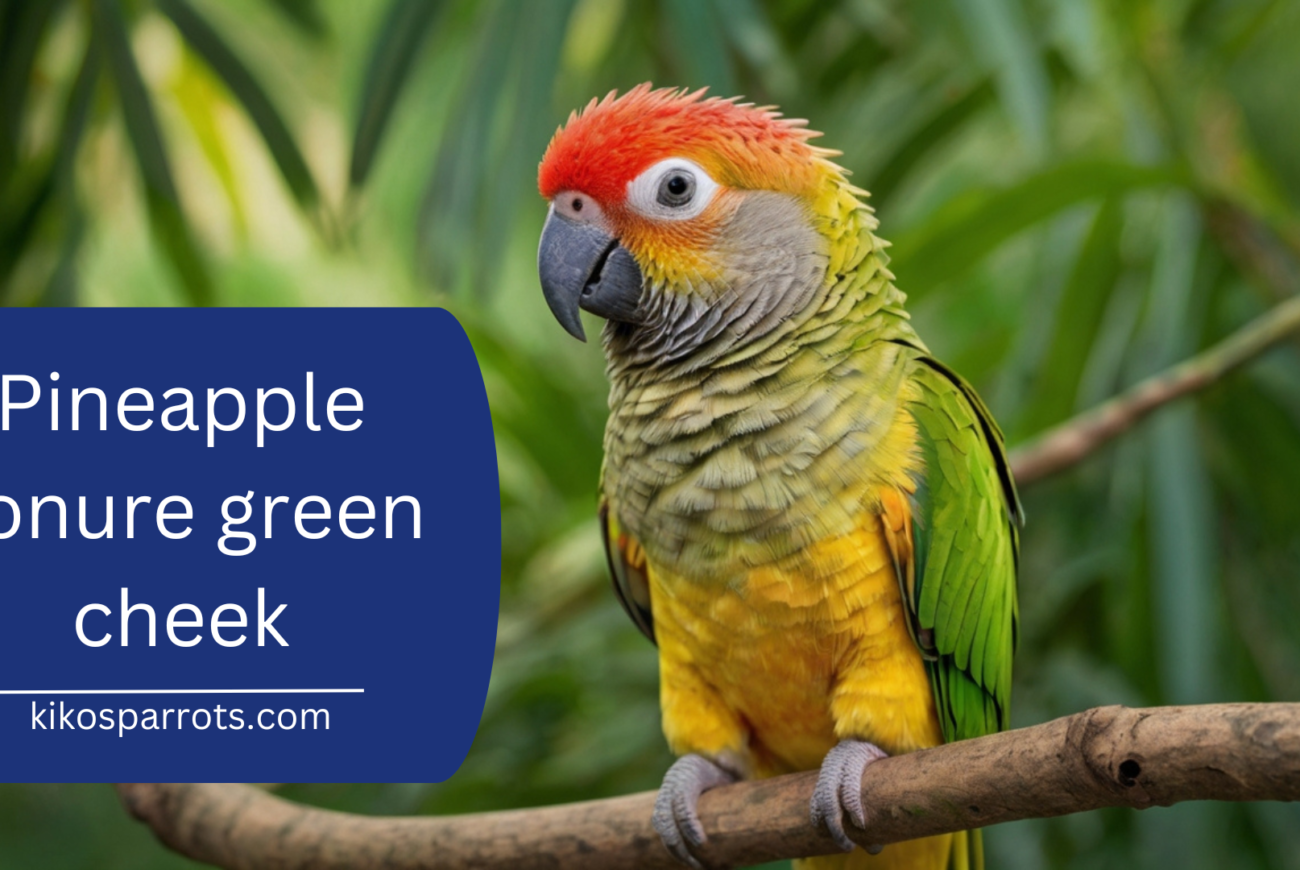
Pineapple Green Cheek Conure: Lifespan and Care Tips
The Pineapple Green Cheek Conure, a vibrant mutation of the Green Cheek Conure, is cherished for its affectionate nature and striking plumage. Understanding their lifespan and providing appropriate care are essential for ensuring a healthy and fulfilling companionship.
Key Points:
- Average lifespan: 15–20 years.
- Factors influencing longevity: genetics, diet, environment.
- Dietary needs: balanced nutrition with pellets, fruits, and vegetables.
- Housing: spacious cage with appropriate accessories.
- Socialization: regular interaction and mental stimulation.
- Health: routine veterinary check-ups and preventive care.
Understanding the Lifespan of Pineapple Green Cheek Conures
Pineapple Green Cheek Conures are small, colorful parrots known for their vibrant personalities and affectionate nature. With proper care, these birds typically live between 15 to 20 years, but some can reach up to 25 years in ideal conditions. Understanding the factors that influence their lifespan is critical for bird owners who want to ensure their conure lives a long and healthy life.
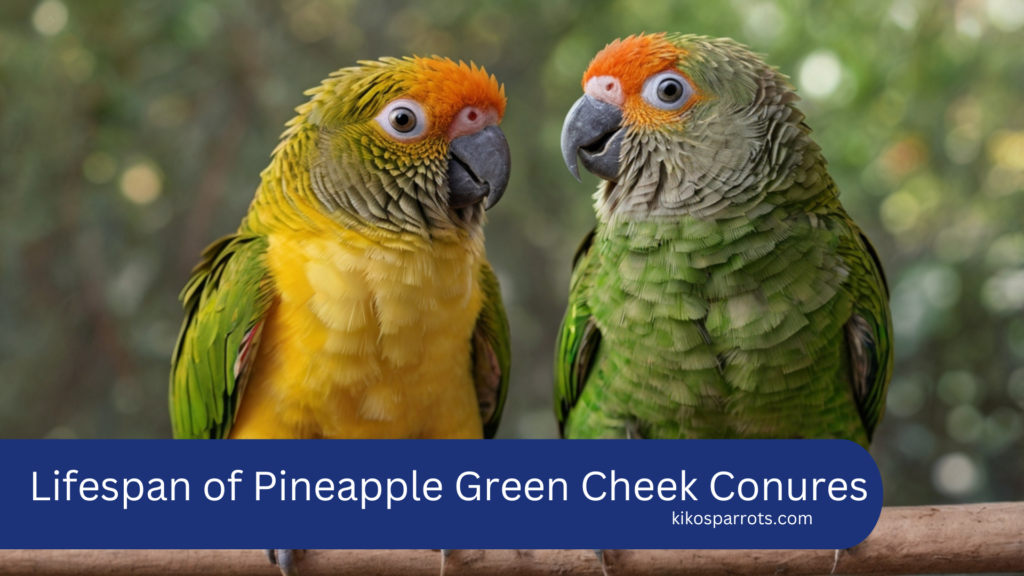
1. Genetics
Genetics play a significant role in determining the lifespan of a Pineapple Green Cheek Conure. Like humans, inherited traits can influence their susceptibility to certain health conditions, physical traits, and overall vitality.
- Parentage: Birds from reputable breeders with a history of healthy birds tend to have fewer genetic issues.
- Mutations and Breeding Practices: Pineapple Green Cheek Conures are a color mutation of the Green Cheek Conure. Overbreeding for specific traits can sometimes lead to genetic weaknesses.
- Early Health Screening: Genetic predispositions, such as immune deficiencies, can be detected early through veterinary check-ups, ensuring preventive care is implemented.
2. Diet
A well-balanced diet is one of the most critical factors affecting a conure’s health and longevity. Proper nutrition supports immune function, energy levels, and the prevention of diseases.
| Key Factor | Details |
| Balanced Diet | Provide nutritious food to support health. |
| Suitable Living Environment | Maintain a clean, safe, and stimulating habitat. |
| Regular Social Interaction | Engage in play and interaction for mental stimulation. |
| Veterinary Check-ups | Schedule regular vet visits for overall health. |
| Overall Care and Attention | Proper care ensures a fulfilling, long life for your conure. |
3. Environment
Creating a safe, clean, and stimulating habitat is essential for a conure’s physical and emotional health. The environment they live in directly impacts their well-being and longevity.
| Category | Recommendation |
| Cage Size | Minimum size: 24″ x 24″ x 24″ with 1/2-inch bar spacing. Larger spaces are preferred for better movement and exercise. |
| Enrichment | – Provide a variety of toys like chew toys, puzzle feeders, and swings. – Rotate toys regularly to prevent boredom. |
| Cleanliness | – Clean the cage thoroughly once a week. – Change water daily to prevent contamination. – Clean food dishes after every meal. |
| Environmental Conditions | – Maintain temperature between 65–80°F (18–27°C). – Avoid direct exposure to drafts or sudden temperature changes. – Ensure good ventilation and avoid smoke or strong odors. |
| Lighting and Sleep | – Birds need 10–12 hours of sleep in a quiet, dark environment. – Use a cage cover or place in a low-light area at night. – Provide natural sunlight or use bird-safe full-spectrum lights for Vitamin D synthesis. |
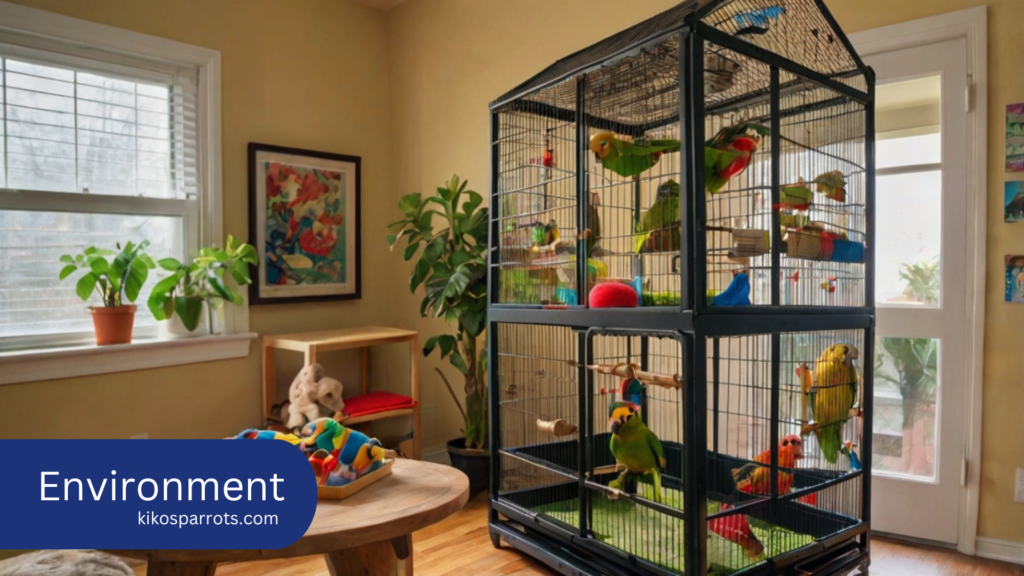
Additional Factors Influencing Lifespan
- Exercise and Activity:
- Encourage daily out-of-cage time for flight and play to promote cardiovascular health and prevent obesity.
- Introduce climbing activities using ladders and ropes to enhance mobility and muscle strength.
- Social Interaction:
- Pineapple Green Cheek Conures are social birds that thrive on interaction. Lack of attention can lead to stress and associated health problems.
- Spend at least 2–3 hours a day engaging with your conure to meet their emotional needs.
- Preventive Health Care:
- Schedule annual check-ups with an avian veterinarian.
- Monitor for signs of illness, such as lethargy, feather plucking, or changes in appetite.
- Vaccinations and routine tests for common bird diseases can detect and prevent serious health issues.
Providing a Balanced Diet for Optimal Health
A balanced diet is essential for ensuring your Pineapple Green Cheek Conure stays healthy, energetic, and lives a long life. Proper nutrition not only promotes physical well-being but also helps prevent common health issues. Here’s what you need to know about feeding your conure.
Recommended Foods:
Pellets should form the foundation of your conure’s diet, making up around 70–80% of their daily intake. These specially formulated pellets provide the vitamins, minerals, and nutrients your bird needs to thrive. Look for high-quality options free of artificial additives. Fresh fruits and vegetables are equally important. Safe fruits include apples (seedless), berries, and mango, while vegetables like carrots, spinach, and broccoli are great options. These should account for about 10–15% of the diet each.
Occasionally, you can offer seeds or nuts as treats, but these should be given sparingly due to their high fat content. Small amounts of sunflower seeds, almonds, or unsalted peanuts can serve as rewards during training.
Foods to Avoid:
Certain foods are toxic to birds and should never be given to your conure. Avocado, chocolate, caffeine, alcohol, and raw beans can all be harmful or even fatal. Additionally, avoid salty or sugary foods, as well as onions and garlic, which can cause anemia. Always check for hidden ingredients in processed foods before sharing them with your bird.
Feeding Schedule:
Consistency is key to a healthy feeding routine. Offer fresh pellets in the morning and supplement them with fruits and vegetables throughout the day. Remove uneaten fresh food after a couple of hours to prevent spoilage. Always provide clean, fresh water, replacing it daily or whenever it becomes soiled.
Additional Tips:
Monitor your conure’s diet to ensure variety and avoid selective eating habits. Chop fruits and vegetables into manageable pieces, and occasionally use foraging toys to make mealtime more engaging. If transitioning to a new diet, introduce changes gradually to minimize stress and digestive upset.
A proper diet is a vital component of your conure’s care, ensuring they stay vibrant, happy, and active throughout their life.
Creating an Ideal Living Environment
Creating an ideal living environment for your Pineapple Green Cheek Conure is essential to ensuring their well-being and longevity. The cage should be large enough to provide space for movement and play, with appropriate bar spacing and natural perches to support foot health. Additionally, providing a variety of toys for mental stimulation, along with a consistent feeding station, is key to a healthy, happy bird. The environment outside the cage, including room temperature and humidity, plays a significant role in your conure’s comfort and health.
Proper environmental conditions, including a safe and clean habitat, are just as crucial. Conures thrive in a space that is free of drafts, with natural light exposure during the day but without direct sunlight. The ideal temperature range for your conure is between 65°F and 80°F, while maintaining 40%-60% humidity. It’s important to ensure the area is free from toxins and has good ventilation. Below is a table summarizing the key recommendations for your conure’s habitat:
| Environmental Factor | Recommendation |
| Room Temperature | 65–80°F (18–27°C) |
| Humidity | 40%–60% humidity |
| Lighting | Provide natural daylight |
| Cage Location | Avoid direct sunlight and drafts |
| Air Quality | Good ventilation, free of toxins |
Socialization and Mental Stimulation
Conures are social creatures requiring regular interaction:
- Interaction:
- Spend time daily handling and talking to your bird to strengthen your bond.
- Toys and Enrichment:
- Rotate toys regularly to keep your conure engaged.
- Introduce foraging activities to stimulate natural behaviors.
- Recognizing Stress:
- Watch for signs like feather plucking or changes in vocalization, which may indicate stress or boredom.
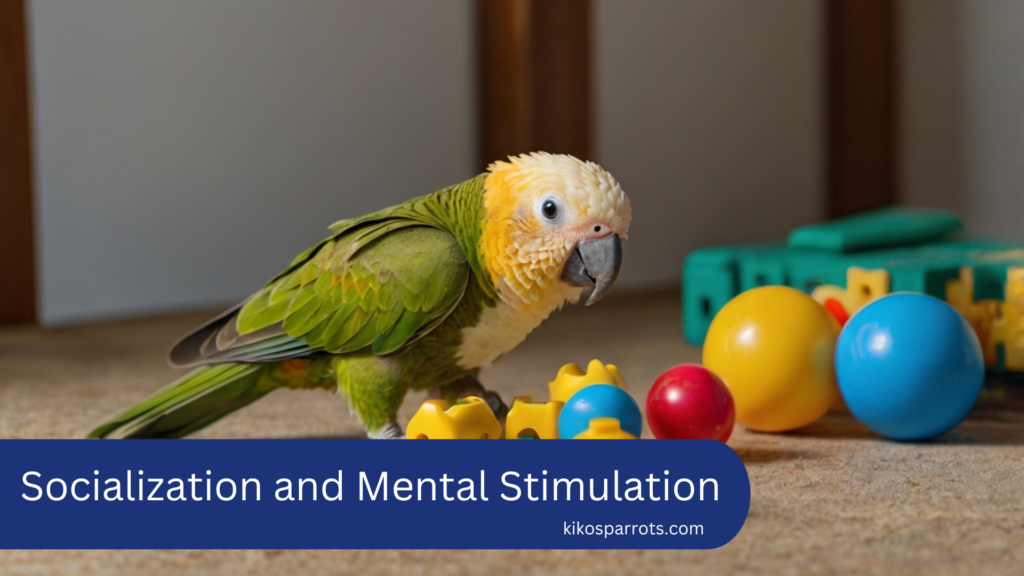
Regular Health Check-ups and Preventive Care
Maintaining your Pineapple Green Cheek Conure’s health requires regular check-ups and vigilance for potential health issues. A yearly visit to an avian veterinarian is highly recommended to ensure your bird stays in good condition.
The vet will provide a comprehensive health assessment, including checks for common problems such as respiratory issues, infections, or signs of nutritional deficiencies.
These annual visits are key to detecting issues early and ensuring that your conure thrives.
Aside from regular veterinary visits, it’s essential to monitor for behavioral changes that could indicate health concerns. For example, wheezing, nasal discharge, or changes in appetite could signal respiratory problems or infections.
Furthermore, consistent grooming is necessary to keep your conure comfortable and healthy. Trim your bird’s nails regularly to prevent overgrowth, and offer bathing opportunities to keep their feathers in top condition. By following these preventive measures, you can ensure a long and healthy life for your Pineapple Green Cheek Conure.
Conclusion
To ensure a long, healthy life for your Pineapple Green Cheek Conure, focus on three key factors: a balanced diet, a suitable living environment, and regular social interaction. Provide nutritious food and maintain a clean, safe habitat to support their well-being. Regular veterinary check-ups and mental stimulation through play and interaction will also keep your conure happy and healthy. With proper care and attention, your conure can live a fulfilling, long life.
FAQ’s
1. Are Pineapple Green Cheek Conures Friendly?
Yes, Pineapple Green Cheek Conures are very friendly and like spending time with their owners. They enjoy being around people and can become close to their families if handled with care.
2. Will Pineapple Conure Talk?
Pineapple Green Cheek Conures don’t talk much, but they can make sounds and repeat a few words. They are better at whistling or chirping than talking, but with time, they might learn a few simple words.
3. How Long Do Pineapple Green Cheek Conures Live?
Pineapple Green Cheek Conures can live for 15 to 20 years, but if they are well taken care of, they can live up to 25 years.
4. Is Pineapple Conure Rare?
No, Pineapple Green Cheek Conures are not rare. They are a type of Green Cheek Conure and are easy to find with breeders. Their beautiful colors make them popular.
5. Can Pineapple Conure Eat Rice?
Yes, Pineapple Conures can eat rice, but only in small amounts. Cooked rice is safe for them, but it should not be their main food because it doesn’t have enough nutrition.
6. Is My Pineapple Conure a Boy or Girl?
It can be hard to tell if your Pineapple Green Cheek Conure is a boy or a girl just by looking at them. Males might talk more, and females might be a bit more independent, but you would need a special test to know for sure.
7. Can Pineapple Conures Eat Chicken?
No, Pineapple Conures should not eat chicken or any meat. They should eat seeds, pellets, and fresh vegetables for good health.
8. Is It Okay to Kiss Your Conure?
It’s not a good idea to kiss your Pineapple Green Cheek Conure on the beak. Birds can carry germs that might be harmful to you, and kissing can also stress the bird. You can show love in other ways, like petting them gently.
9. Do Pineapple Conures Lay Eggs?
Yes, female Pineapple Conures can lay eggs, even without a mate. These eggs will not be fertilized, but it’s important to make sure they are healthy, especially if they start laying eggs.
10. What Food Do Conures Eat?
Conures like to eat pellets, fresh fruits (like apples and grapes), vegetables (like carrots and leafy greens), and some seeds. A balanced diet helps them stay healthy.
11. Which Conure is Best?
The best conure depends on what you want. Green Cheek Conures (like the Pineapple type) are smaller and quieter. If you want a bigger and louder bird, a Sun Conure might be a good choice.
12. Can Pineapple Conures Eat Carrots?
Yes, Pineapple Conures can eat carrots. They are healthy for them and provide good vitamins. Just cut the carrots into small pieces for them to enjoy.
13. Is Milk Good for Conures?
No, conures should not drink milk. They are often allergic to it and it can upset their stomach. Fresh water is the best drink for them.
14. How Do I Make My Conure Happy?
To keep your Pineapple Green Cheek Conure happy, give them good food, toys, and a lot of attention. Let them play and spend time with you, and they will feel loved and happy.
15. Is Banana Good for Conures?
Yes, bananas are a good treat for Pineapple Conures. They are full of vitamins and are a nice snack, but don’t give them too much because bananas have sugar.

